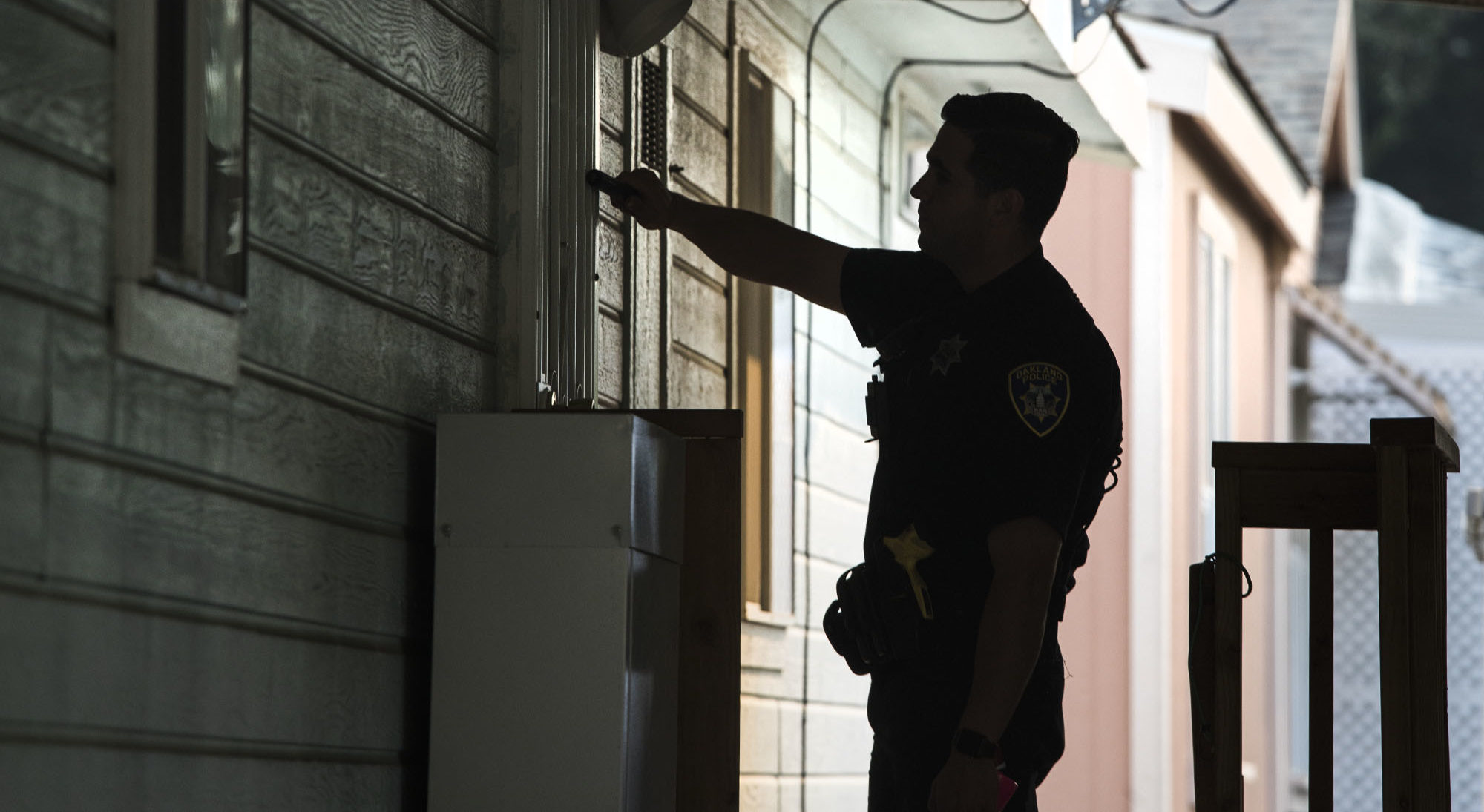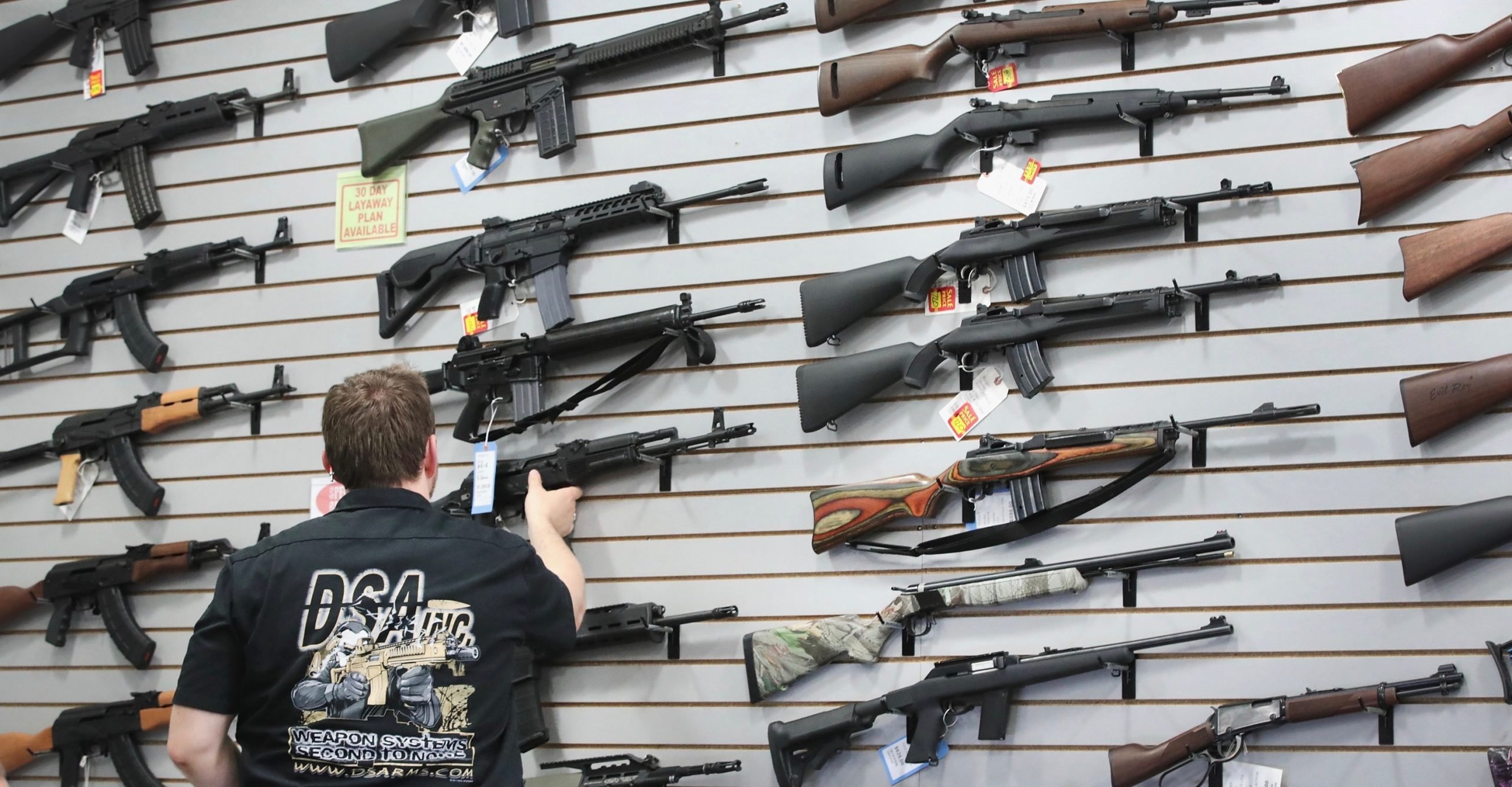In early April, a Seattle woman brought her boyfriend to the Northwest Hospital emergency room for a mental health check. She told the doctors that he owned three guns, had been fantasizing about mass shootings, and wanted to be a “hero” for the white race, according to a court document. While he hadn’t yet committed a crime and didn’t meet the criteria for involuntary psychiatric commitment, doctors, counselors, and police agreed he shouldn’t have access to firearms.
The police applied for an extreme risk protection order, which a judge later granted. Washington is one of 15 states with an ERPO or “red-flag” law on the books. Such laws provide police, family members, mental health professionals, and educators with a way to disarm gun owners who are deemed a threat to themselves or others.
Now, the state wants to use ERPOs for more gun owners who, like the man who went to Northwest Hospital in early April, threaten to commit hate-fueled violence. Among a slew of gun violence prevention bills signed by Governor Jay Inslee in early May was an amendment to the current ERPO law that specifies that judges should consider whether a troubled gun owner has been convicted of “malicious harassment,” a category that includes behaviors like burning crosses and defacing property with swastikas. It’s the first hate-specific ERPO law in the country.
“Since the 2016 election, we’ve seen an enormous increase in hate-fueled animus,” said Marko Liias, the state senator who conceived of the reform. “If someone’s spewing hate and making threats in concrete ways, and law enforcement can detect that, we should encourage police to take action.”
Washington passed its ERPO law by ballot initiative in 2016. However, potential petitioners had a learning curve, according to Kim Wyatt, a prosecutor who leads a team that specializes in civil gun seizures in King County, which contains Seattle. She said that the first year the ERPO was in effect, the orders were hardly used. But by 2018 police, members of the community, and prosecutors had a better idea of how, why, and when to petition courts, Wyatt said.
“As we’re doing these cases, we’re realizing what kinds of threats they can address,” Wyatt said. The October shooting at the Tree of Life synagogue in Pittsburgh that left 11 dead prompted her office to wonder if they couldn’t use ERPOs for gun owners who posed a particular risk of committing hate-fueled killings. Senator Liias introduced legislation to do just that in February.
Mass violence is “the endgame for organized hate,” said Brad Galloway, a former white supremacist who now works as a criminologist and consults for Life After Hate, a group that tries to deradicalize members of the racist far-right.
Guns are both readily available in the United States and symbolically important in white supremacist ideology: Firearm rights figure prominently in the extremists’ rhetoric, which extends the logic of armed self-defense to the entire white race. Galloway said focusing on firearms is a crucial policy tactic to blunt far-right violence: “One of the ways to prevent attacks is to take away access for certain people — especially if they have been convicted of a hate crime.”
The shortcomings of longer-standing policy mechanisms are part of what led to Wyatt and her colleagues’ interest in ERPOs. The orders have a few advantages over systems like background checks: Judges can grant petitions for gun seizures when provided with evidence of an acute threat or crisis, not only after a trial, enabling courts to examine evidence like online threats, which have been common among white supremacists.
The bill’s sponsors hope that once they draw attention to the fact that the orders can be issued on the basis of past hate crime convictions, more Washington residents and police officers will pursue orders against gun owners who threaten others on the basis of race, religion, gender, or sexual orientation. As Wyatt and other experts have argued, the gun seizure laws are only effective if routinely applied by citizens and authorities.
Some advocates of gun violence prevention praised the intent of the hate crime language inserted into Washington’s ERPO law, but expressed skepticism about the impact. “Other than articulating to a judge that this is important, this does not allow a judge to do something they couldn’t already do,” said Allison Anderman, an attorney at the Giffords Law Center to Prevent Gun Violence. Indeed, the original ERPO law directed judges to consider any felony convictions, which would cover malicious harassment, although it didn’t explicitly spell out which felonies were particularly relevant to risk of future violence.
Wyatt readily acknowledged that the reform primarily provided judges and petitioners with clarification and direction. But it’s still useful, she said, because judges and law enforcement are still figuring out how to effectively use ERPOs.
Aside from the reform’s concrete impact, some elected officials worry that the hate crime provision drained ERPOs of their bipartisan appeal. State Senator David Frockt said Republicans who had supported an earlier version of the bill that he authored switched their votes once Senator Liias’ hate crime proposal was added as an amendment.
Opposition to the orders often takes the form of questions about due process: Could ERPOs be used to disarm people on the basis of a personal grudge, or mere speech? That’s how the National Rifle Association criticized the bill before and after it was signed by Governor Inslee.
But the ERPO law requires multiple hearings before a judge, must be based on threats, and only allows for a temporary gun ban.
ERPO laws across the country have enjoyed rare bipartisan support. Nonetheless, Washington’s new hate crime provision led to the withdrawal of some Republican support, said Frockt.
“I was surprised there was partisan opposition to the bill,” Liias said. “It seemed really clear that if someone was threatening a hate crime, this should be a tool that law enforcement could use. The opposition didn’t seem to understand how judicial review works.”

